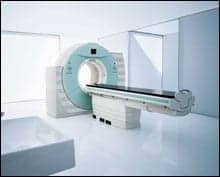The permanent injunction prohibits Biosense Webster from using ‘kill switches’ and tying clinical support to new device purchases, a practice the court found blocked hospital access to lower-cost reprocessed cardiac catheters.
A US District Court has issued a permanent injunction against Johnson & Johnson’s Biosense Webster (BSW) medical device unit for unlawful, anti-competitive conduct. The ruling, issued by Judge James Selna of the Central District of California, prohibits BSW from blocking hospitals’ access to FDA-regulated reprocessed cardiac catheters.
The decision follows a jury verdict ordering BSW to pay plaintiff Innovative Health, LLC, a medical device reprocessor, $147 million in damages, which automatically tripled to $442 million for violations of federal and state antitrust laws.
The five-year injunction specifically bars BSW from:
- Tying clinical support for its cardiac mapping machines to the purchase of new BSW devices.
- Discriminating in its clinical support based on a provider’s use of reprocessed BSW devices.
- Implementing new “kill switches” or other technologies designed to prevent devices from functioning after reprocessing.
- Hoarding used catheters that it does not reprocess to prevent competitors from obtaining source materials.
Impact on Hospital Operations and Device Servicing
The Association of Medical Device Reprocessors (AMDR) framed the ruling as a significant victory for hospitals seeking to control costs and manage medical device supply chains. Evidence presented at trial detailed BSW’s methods, which included inserting “kill switches” in some devices, withholding training on its cardiac mapping machines from non-BSW personnel, and collecting used devices to restrict supply for reprocessors.
“This ruling reaffirms that dominant device manufacturers cannot abuse their market power to prevent hospitals from delivering the best possible care at the lowest possible price to the most patients in need at the least cost to the environment,” says Daniel J. Vukelich, president and CEO of AMDR, in a release. “The verdict from the jury and the injunction from the judge both send strong signals to the MedTech industry that the courts are on alert and will not tolerate monopolistic conduct.”
During the trial, testimony from hospital leadership highlighted the operational challenges created by BSW’s policies. Mary Roberts, corporate director of supply chain for Providence St Joseph’s Hospital, testified that BSW’s policy “stops us from being able to meet our goal of making healthcare affordable to everyone.”
Court testimony indicated that reprocessed catheters can cost up to 50% less than new devices while being equally effective and safe. AMDR is now encouraging hospital staff, including HTM professionals, to report any instances of vendors engaging in the anti-competitive practices outlined in the case.
ID 9338559 | Concept © Webdata | Dreamstime.com





